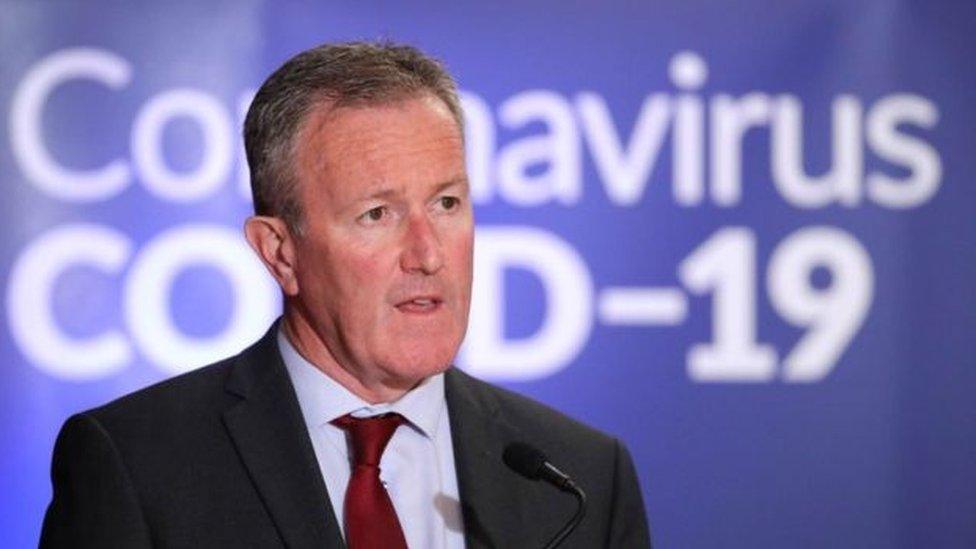Coronavirus: Stormont ministers in four-nations meeting
- Published
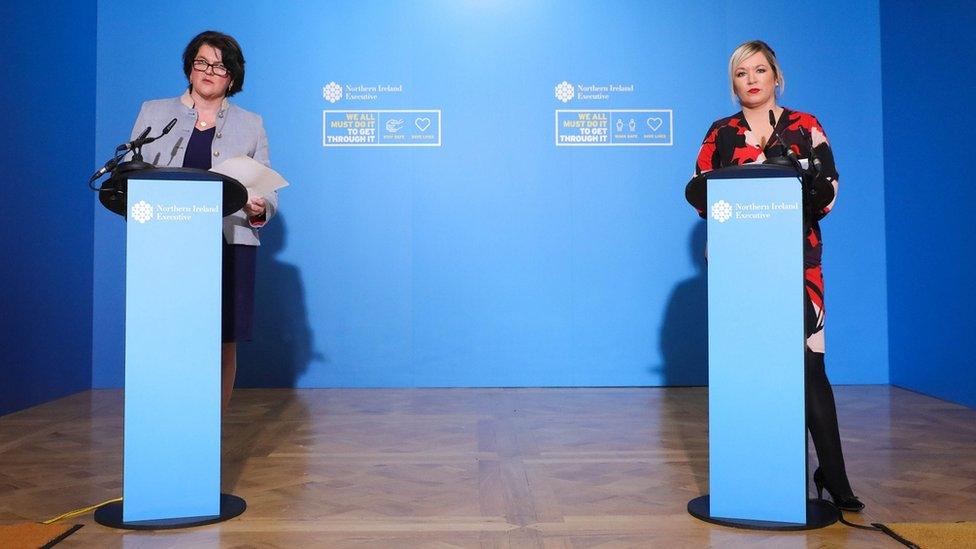
Arlene Foster and Michelle O'Neill have been urging people to heed the public health messaging
The first and deputy first ministers have held talks with the British government and other devolved leaders about the four nations' differing approaches to tackling Covid-19.
The video call was chaired by Cabinet Office Minister Michael Gove.
Arlene Foster and Michelle O'Neill also raised the extension of the furlough scheme during the meeting.
Mrs Foster has insisted the current NI-wide restrictions agreed by the executive will end on 13 November.
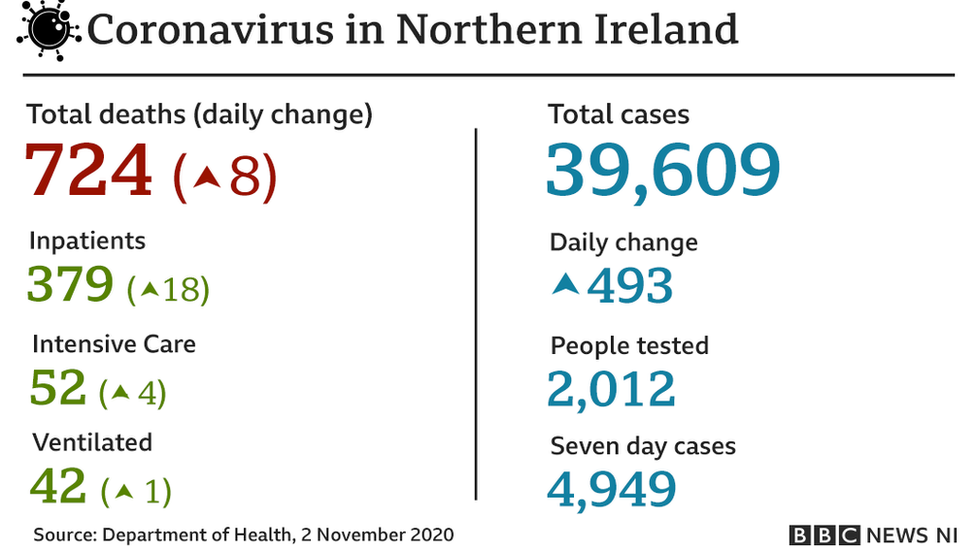
The Department of Health reported eight more Covid-related deaths in Northern Ireland on Monday, bringing the death toll to 724.
There were also 493 confirmed new cases of coronavirus in the previous 24 hour period, meaning there have been 39,609 instances of Covid-19.
England begins a month-long lockdown on Thursday, Scotland has a new five-tier system of restrictions while in Wales, a 17-day "firebreak" lockdown is due to end on 9 November.
Restrictions affecting all of Northern Ireland were imposed on Friday 16 October, and saw hospitality and close-contact services forced to shut for four weeks.
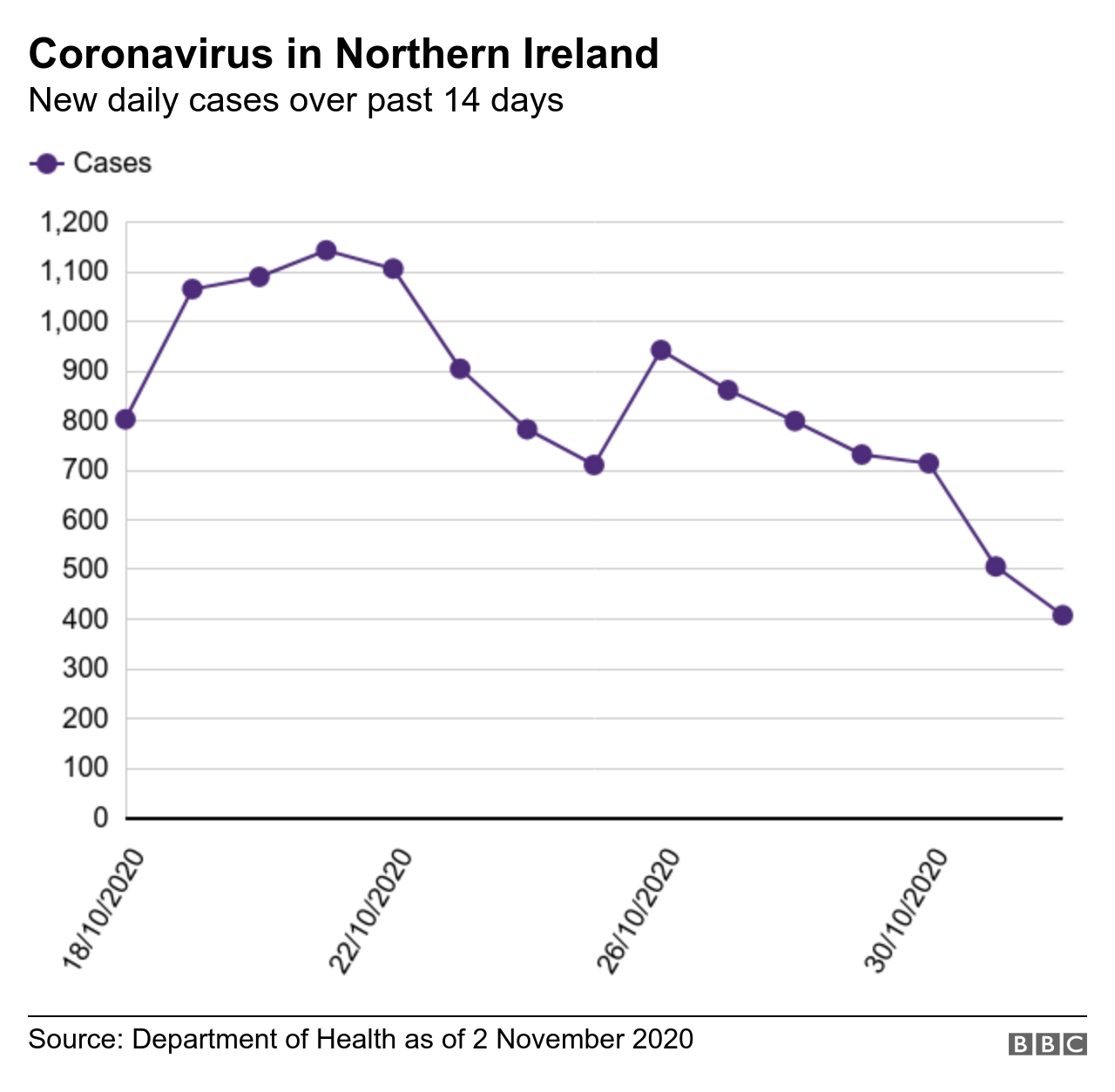
Following the meeting, a government spokesperson said the political leaders had agreed they would work together on a "joint approach to the Christmas period."
There was also agreement on "the importance of co-ordinating public messaging" around the restrictions people are adjusting to.
There will be another such meeting later this week, where "international travel measures" will be discussed.
Deputy First Minister Michelle O'Neill has said the NI-wide restrictions will be "reviewed" by 13 November, and said the focus must be on following the guidelines and minimising the spread of the virus.
Allow X content?
This article contains content provided by X. We ask for your permission before anything is loaded, as they may be using cookies and other technologies. You may want to read X’s cookie policy, external and privacy policy, external before accepting. To view this content choose ‘accept and continue’.

A difference of emphasis has emerged between Ms O'Neill's party, Sinn Féin, and the Democratic Unionist Party (DUP), led by Mrs Foster, over the nature and extent of any further restrictions.
Speaking on BBC Radio Ulster's Good Morning Ulster programme on Monday, Mrs Foster said the executive was "constructing a strategy" about how NI could learn to live with coronavirus.
"We were very clear when we agreed the restrictions they should be in place for four weeks," she said.
"But will we come out and be in a pre-Covid situation on 13 November? No, I'm afraid we'll not be because we'll still have to do the basics."

Can Northern Ireland 'learn to live' with Covid-19?

The executive admits it has bought time with its latest restrictions: time to get the rate of infection down, time to help the health service and time to put in place a new plan.
Governments in other parts of the UK and Republic of Ireland are taking similar approaches.
Executive ministers want to develop a long-term approach where Northern Ireland can manage coronavirus while keeping as much of society open as possible, in the absence of a vaccine.
They say that includes a number of measures including improving Track and Trace and expanding the health service.
This pandemic has already exposed tensions at the heart of the power-sharing executive over the three Ls - Lives, Livelihoods and Liberties.
Now, ministers may have to put equal emphasis on the three Cs - Communication, Compliance and Confidence - if they want any long-term strategy for dealing with the virus to be successful.
Read more from Jayne here.

The first minister said the executive had been engaging with different sectors about trying to "work differently" to make workplaces more "Covid-secure".
"None of this is easy - there's no template for doing any of this," said Mrs Foster.
Asked about comments from NI's chief medical officer Dr Michael McBride, external that the R-number - or reproduction value - would rise above one if schools and hospitality both remain open, the first minister said she recognised there were "difficulties" in reopening all of society.
Northern Ireland cannot "keep going into a situation where we keep switching things on and off," she added.
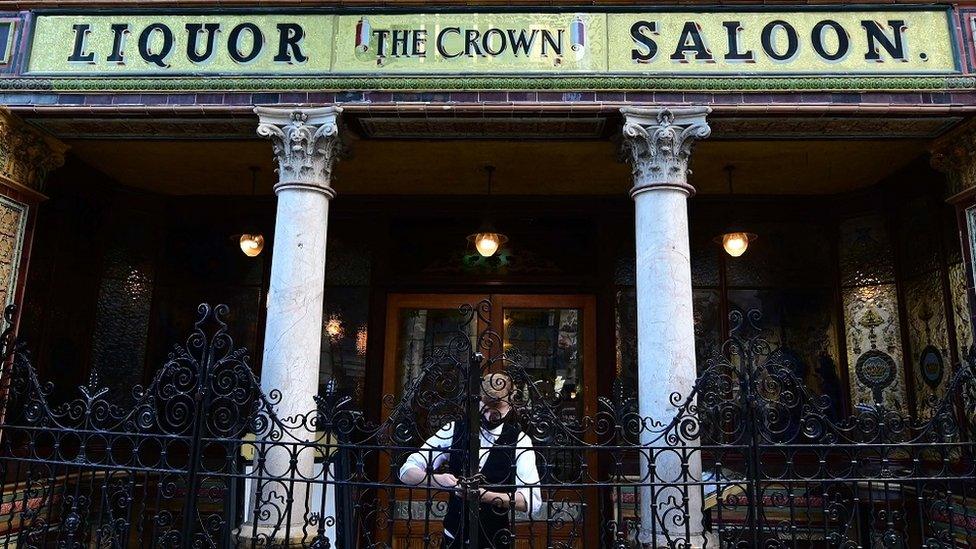
Much of the hospitality sector is struggling to maintain jobs due to the latest restrictions
R is the number of people that one infected person will, on average, pass the virus on to. The goal is to keep it below one.
It was sitting at 1.5 in Northern Ireland when the latest restrictions were introduced.
Last week, health officials said it was estimated that R for case numbers had fallen to about one, but said it would take more time before the full effects of the restrictions became clear.
- Published2 November 2020
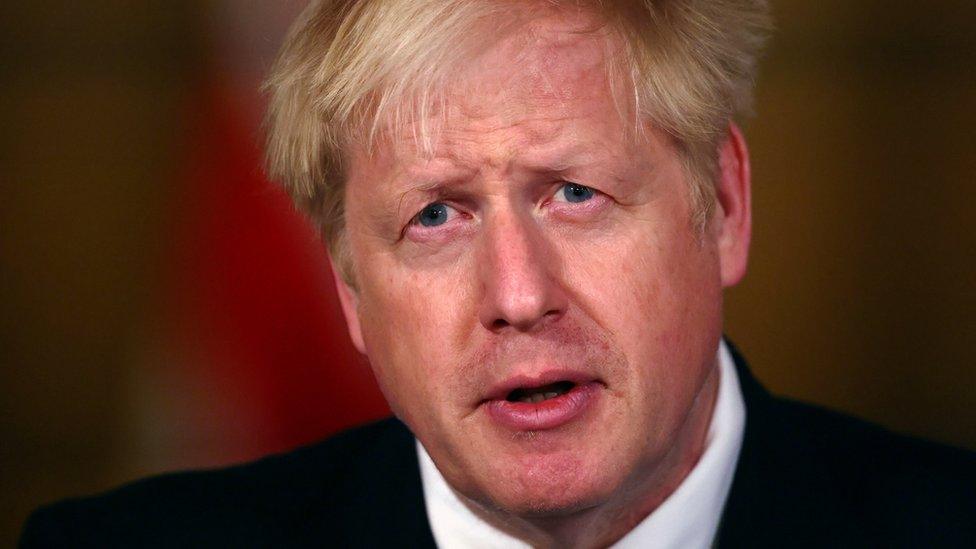
- Published31 October 2020
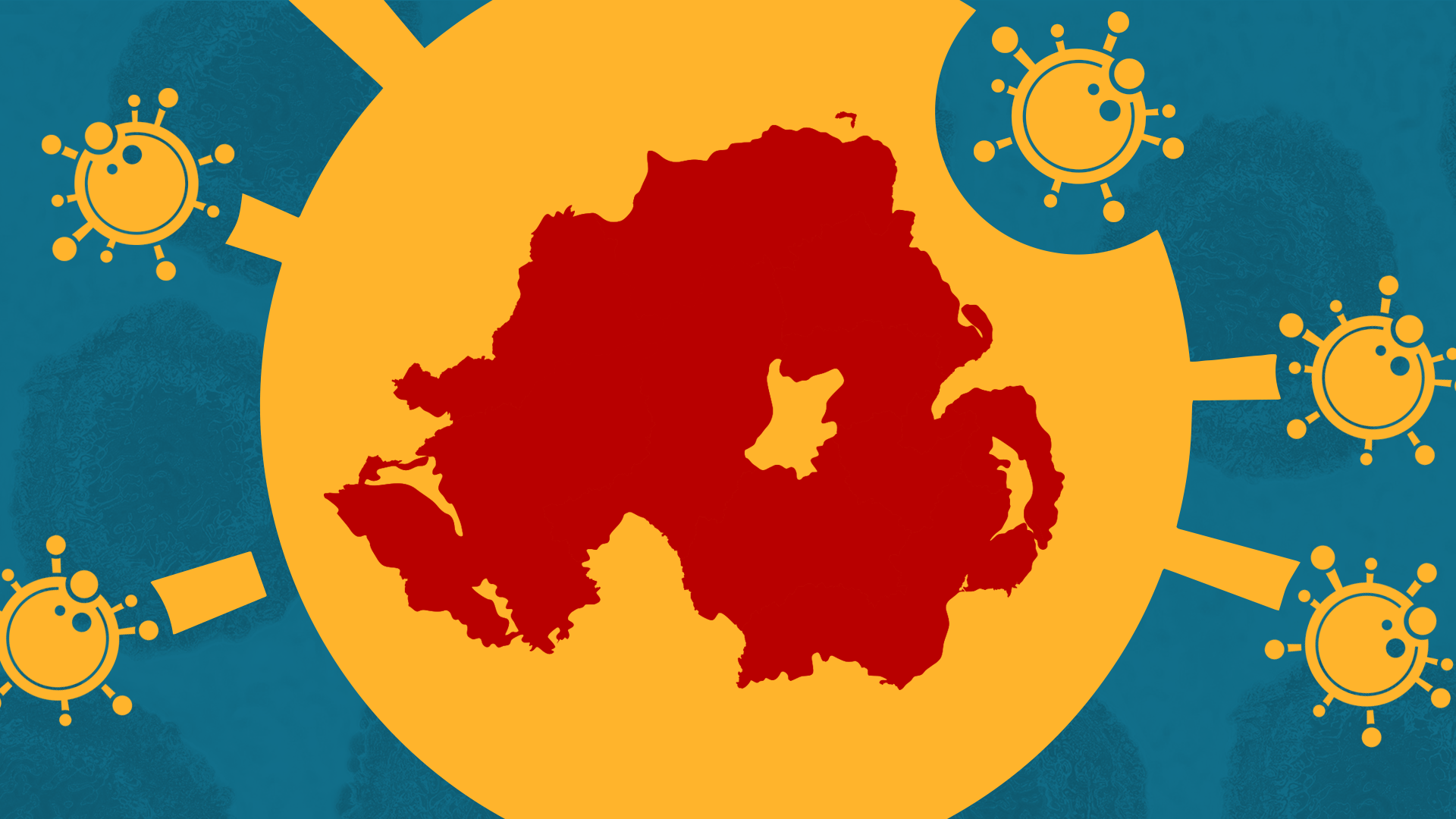
- Published1 November 2020
